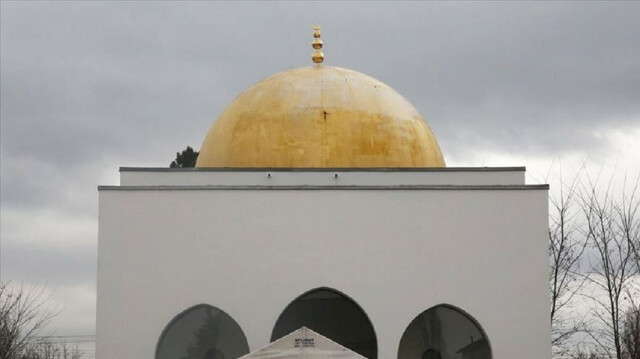
6 more mosques to be shut over radicalization, says French interior minister
Amid ongoing drive against Muslims and their worship places, France has shut down one-third of 89 inspected mosques since November 2020, the French interior minister said.
Gerald Darmanin told Le Figaro newspaper that before the "anti-separatism law" was enacted, 650 places were closed in the country for allegedly housing "extremists", and 24,000 places were inspected by French police.
Darmanin stated that as a result of the inspections carried out in 89 mosques since November 2020 over radicalization allegations, one-third of them have been closed, adding they are taking action to close six more mosques in Sarthe, Meurthe-et-Moselle, Cote-d'Or, Rhone, and Gard regions.
Darmanin added they also opposed the construction of a mosque called "Eyup Sultan" in Strasbourg, which is affiliated with the Islamic Community National View (IGMG), despite the approval from local authorities.
Noting that five Muslim associations allegedly promoting the so-called "political Islam" have been closed so far, the minister said the separatism law allows them to do more than that.
There will be a total of 10 additional associations closed, with four of them closing in October, he said, adding bank accounts of 205 associations were confiscated and two imams were expelled.
“We spread terror among those who want to impose terror on us,” he said, adding that religious officials from abroad will not be able to come to the country starting 2023 and that he has instructed the governors not to renew the residence permits of those who are here.
He said they do not renew residence cards of people sentenced for drug trafficking and domestic violence in the country.
France has limited the number of visas issued to Algerian, Tunisian, and Moroccan citizens in order to enable these countries to readmit their citizens deported by France, he said.
- Anti-separatism law
In August, France’s highest constitutional authority approved a controversial “anti-separatism” law that has been criticized for singling out Muslims, striking down just two of its articles.
The bill was passed by the National Assembly in July, despite strong opposition from both rightist and leftist lawmakers.
The government claims that the legislation is intended to strengthen France's secular system, but critics believe that it restricts religious freedom and marginalizes Muslims.
The bill has been criticized for targeting France's Muslim community – the largest in Europe, with 3.35 million members – and imposing restrictions on many aspects of its members' lives.
The law allows officials to intervene in mosques and associations responsible for their administration, as well as control the finances of Muslim-affiliated associations and NGOs.
It also restricts the educational choices of Muslims by making homeschooling subject to official permission.
Under the law, patients are prohibited from choosing their doctors based on gender for religious or other reasons, and "secularism education" has been made compulsory for all civil servants.
France has been criticized by international organizations and NGOs, especially the UN, for targeting and marginalizing Muslims with the law.
* Writing by Seda Sevencan

